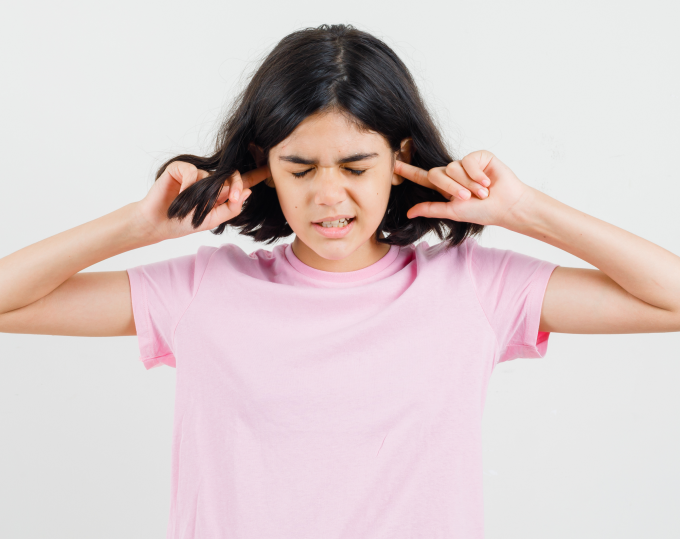If a child has ants crawling into his ear, should he cover his nose, mouth, and the other ear so the ants can get some air and crawl out? (Dong Tri, Dak Nong)
Reply:
Anatomically, the structure of each ear is independent and does not communicate with each other. Each ear has its own path to the nose, called the Eustachian tube. Therefore, it is incorrect for a child to cover the other ear, nose, and mouth because they think that the ant will crawl out due to lack of air when it enters one ear.
Improper handling of an insect entering the ear can lead to otitis externa, even damage the ear and cause a perforated eardrum. Therefore, when suspecting an insect entering the ear, parents should quickly take the child to a medical facility for an ENT doctor to perform an ear endoscopy, check and remove the insect from the ear (if any). In addition, covering the child's nose and mouth is also very dangerous because it can cause suffocation leading to respiratory failure.
Insects entering the ear is very common, especially in children living in environments close to nature such as near fields, hills, forests, rivers and streams. Insects entering the ear not only cause infection, many species can also parasitize and lay larvae in the ear. Larvae can penetrate deep into the ear, perforate the eardrum, and move into complex tissues in the nose, sinuses, and brain, which is very dangerous.

Covering your ears when insects get in is the wrong way to handle it. Photo: Freepik
To prevent the risk of insects entering the child's ear, parents should pay attention to cleaning the child's bedroom every day. Avoid dropping food and drinks, especially sweets and candy on the crib or bed, which will attract ants and other insects. Children should not bathe in polluted water or wild water in nature such as forest streams, swamps, and lakes. Children should not sleep in places with too many trees or open rooms that are susceptible to insect invasion.
When a child has an open wound in the ear or an injury in the ear due to otitis, parents need to pay attention to cleaning the pus according to the doctor's instructions, take measures to cover and protect the ear, and avoid attracting insects. Do not let flies come into contact with the child's damaged ear because they can spread parasites, making the infection worse. They can also lay eggs, which hatch into larvae (maggots) that cause infection, destroying the tissues in the ear. The larvae can also move to many communicating structures, which is life-threatening.
Summer is the time when insects such as flies, mosquitoes, and ants thrive and grow the most. Parents should also take measures to repel and destroy insects from their children's living environment, such as spraying insecticide periodically and using fly and mosquito nets.
Camphor can repel insects but is toxic and dangerous for children if swallowed. Camphor has a size and color very similar to candy, which is very attractive and confusing for children, especially children under 5 years old. The risk of children eating and swallowing camphor is very high. Swallowing camphor can cause poisoning, vomiting, digestive disorders, diarrhea, abdominal pain, loss of consciousness or damage to the exposed skin area. Severe poisoning can lead to death.
MSc.MD.CKI Nguyen Thi Thuc Nhu
ENT Center, Tam Anh General Hospital, Ho Chi Minh City
Source link

































































Comment (0)